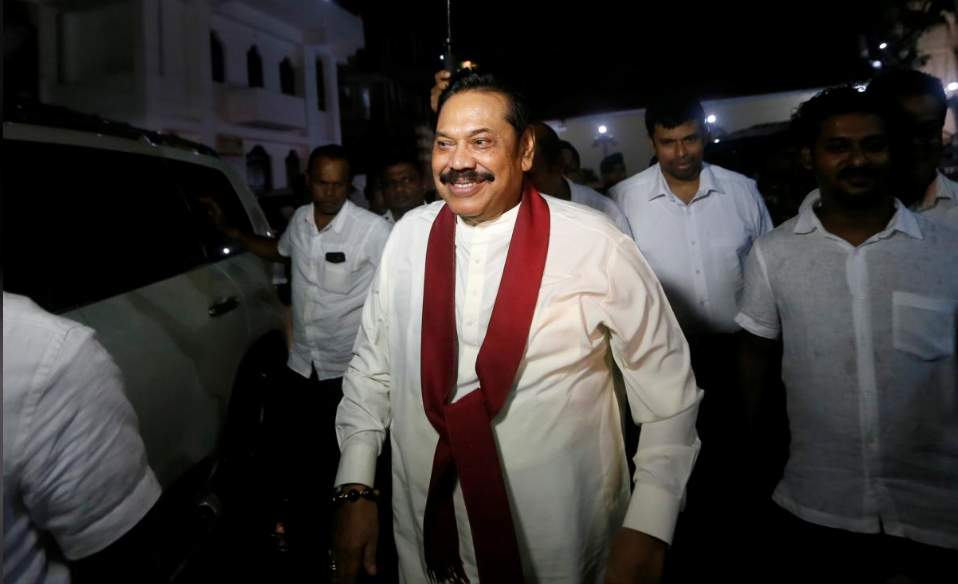
Politics
09:20, 27-Oct-2018
Turmoil in Sri Lanka as president sacks premier
Updated
08:58, 30-Oct-2018
CGTN

Sri Lankan President Maithripala Sirisena sacked Premier Ranil Wickremesinghe, who was away touring the south of the country, and appointed opposition leader Mahinda Rajapaksa on Friday in a surprise move that threatens political turmoil in the South Asian country.
But Wickremesinghe later told reporters he remained the country's prime minister.
“I have the majority and I remain as the prime minister and I will function as the prime minister,” he said.
Rajapaksa later said “the people” had requested his party take over the government and called on Wickremesinghe's supporters to respect democracy and the rule of law.
Sirisena later issued an official gazette notification that declared the removal of Wickremesinghe and appointment of Rajapaksa.
Under Sri Lanka's constitution, modeled on the French system of government, the president has executive powers while the prime minister heads the parliament.

Sri Lanka's former President Mahinda Rajapaksa walks to a temple after being sworn in as new prime minister in Colombo, Sri Lanka, October 26, 2018. /Reuters Photo
Sri Lanka's former President Mahinda Rajapaksa walks to a temple after being sworn in as new prime minister in Colombo, Sri Lanka, October 26, 2018. /Reuters Photo
Underlining the risk of chaos, where the government had been under pressure over a misfiring economy, Media and Finance Minister Mangala Samaraweera said on Twitter that the appointment of Rajapaksa as prime minister was a violation of the constitution, which was amended in 2015 to curtail the powers of the president.
State-run Rupavahini briefly went off-air when three ministers, including Samaraweera and Cabinet Spokesman Rajitha Senaratne, tried to address the nation during a live television program.
Earlier Sirisensa's United People's Freedom Alliance (UPFA) had said it would quit the ruling coalition, capping months of rising tensions between the president's bloc and Wickremesinghe's center-right United National Party (UNP).
UPFA lawmaker Susil Premajayantha told reporters that a new cabinet would be sworn in soon.
Sri Lanka's 87-billion-US-dollar economy has been under pressure in recent years, with growth last year slowing to a 16-year low of 3.3 percent due to tight monetary and fiscal conditions, droughts and floods.
(Top image: Sri Lanka's former president Mahinda Rajapaksa (front, L) is sworn in as the new prime minister before President Maithripala Sirisena in Colombo, Sri Lanka, October 26, 2018. /Reuters Photo)
Source(s): Reuters

SITEMAP
Copyright © 2018 CGTN. Beijing ICP prepared NO.16065310-3
Copyright © 2018 CGTN. Beijing ICP prepared NO.16065310-3